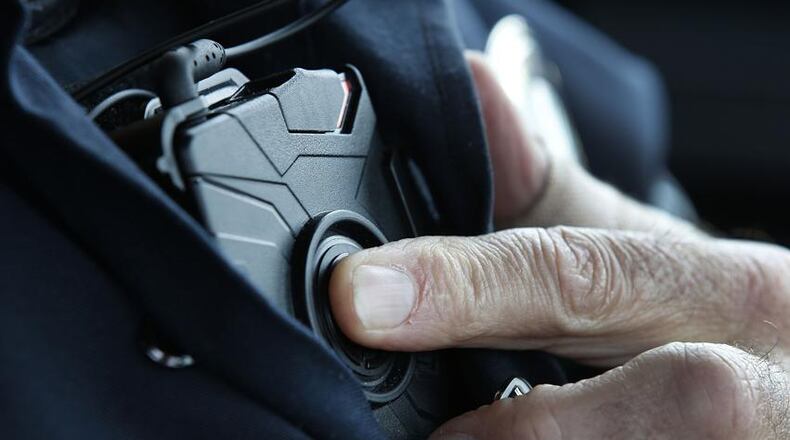It’s unclear whether a condition of the grant money will be that police agencies adopt state standards for body camera use, such as when the cameras must be turned on.
In January, the city of Dayton began looking for funding and a vendor to provide body cameras. Dayton is currently the largest city in Ohio not to equip officers with body cameras.
DeWine included the new $10 million grant program in his two-year state budget plan, along with several other measures the governor says will address crime and safety:
- $1 million in grants for law enforcement to recruit and retain police officers who reflect local communities and better screen out unsuitable police candidates.
- $5 million for the Ohio School Safety Center, which screens and analyzes threats made on social media, reviews school emergency plans, and operates a free tip line to collect information on potential violence. (Tip line number is 844-723-3764.)
- $13 million to expand the Ohio Narcotics Intelligence Center, which assists local police with forensic analysis of seized electronics.
- $8 million for grants to reduce violent crime by investing in gun shot detection technology, creating gun intelligence centers and supporting community initiatives.
- $1 million to expand a new expedited pardon project and allow for sealing of criminal records of those who are pardoned.
DeWine also pledged that his budget will include provisions of Strong Ohio, a package of gun restrictions and reforms that was largely ignored by state lawmakers last year.
“I’ve told you that we are not giving up on those. We’re coming back. So, we’re back to the legislature again,” the governor said during press questions on Wednesday.
The proposed budget will include provisions focusing on ways to reduce gun crimes and address the problem of violent crimes committed by people who aren’t legally allowed to have guns.
“We are not giving up on the pledge I made to the people of the Miami Valley. We are going to continue to fight, we’re going to continue to do everything we can to support local law enforcement. We’re going to do everything that we can to carry out the commitment I made to the Miami Valley,” DeWine said.
Gun policy reformers criticized DeWine in January for signing a “stand your ground” bill into law, which removes the duty to first consider retreating from danger in public places before using deadly force in self-defense. Gun rights advocates applauded the move.
The state budget bill will be introduced in about two weeks. Lawmakers in the House and Senate then will make their own changes and agree on a final version by June 30. The state fiscal year begins July 1.
About the Author


